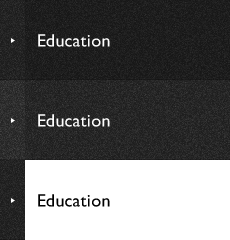Interviews with Recipients of the "Tokyo Institute of Technology Academic Excellence Awards"
Tokyo Institute of Technology began awarding Academic Excellence Awards to 4th-year students in 2007 with the aim of boosting the motivation of its undergraduates. Awards are given to the students with the highest grades in each department or program. The 2012 Academic Year winners are listed below. Congratulations!
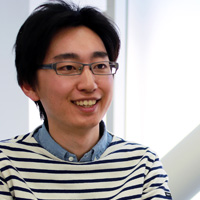
Q: What led you to choose Tokyo Tech?
I had been interested in science since high school and I wanted to go to a national university in Tokyo that specialized in sciences, particularly physics. There were two options, but when I went for an open campus at Tokyo Tech I really felt like the atmosphere was a good fit and that I wanted to study here. Looking back, it feels like it was "fate" that brought me here rather than a choice that I made.
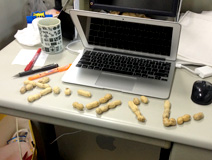
On the day of Setsubun, a week before
my graduation thesis was due, instead
of throwing beans, a senior student in
the lab wrote me a message of
encouragement with beans.
Q: During your time at Tokyo Tech, what experiences made the biggest impression on you?
The year I spent as a lab member during my 4th-year was very fulfilling. There were around 10 other 4th-year students in Professor Shigenori Maruyama's lab, which was the lab I was assigned to. I got to know a lot of students through the student groups for my major and department. There was hardly anyone in the entire department that I didn't know and there was ample opportunity to mingle with people working in other labs. As a result, I had friends to share the good times as well as the hard times. I was able to overcome the many challenges I had to face in terms of my research, etc. It was also a big help on a personal level to have friends to spend time with after completing the various stages of the research project and during breaks. Of course, there were lots of difficult times in terms of doing analysis and producing data. Having a strong sense of community with fellow lab mates was a great resource.
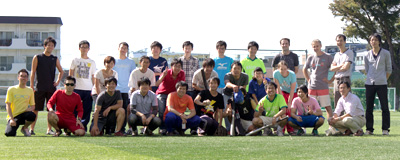
Playing softball with the other members of the Department
of Earth and Planetary Sciences during a break from research
Q: What are you planning to do after graduation?
I am going to pursue a master's degree at Tokyo Tech and continue to do research. I have two goals for the program. The first is to go on Tokyo Tech's international exchange program with Washington University. In my third year I was able to briefly study there and the school is famous for being at the forefront of Earth Surface Dynamics research, which is my specialization. I do not know specifically what type of work I will do, but I am certain I will increase my knowledge base and it will influence my future career path.
My second goal is to have a paper published in an international science journal. I know it won't be easy, but if I continue to work diligently, receive instruction, and my research continues to progress, then it is definitely not an impossibility. I still haven't completely decided on whether or not I will go on to a doctoral program. I think the idea of being a researcher is very attractive, but I know that not many people are able to reach that position.
Q: Do you have a message for younger students?
College life can be hectic, but you have a lot of time to devote to valuable pursuits. There might be things that may seem like a waste of time initially, but in fact, turn out to be worthwhile. You should make sure you keep an eye out for such opportunities. My goal of studying abroad is the result of challenging myself in a variety of ways.
In terms of choosing which lab to enter, I think considering the people that you will be working with is just as important as the topic of your research, if not more so. The professors and people around you definitely have a big influence on the research you perform. I recommend taking into account both the type of research and the people when choosing what lab you want to join.
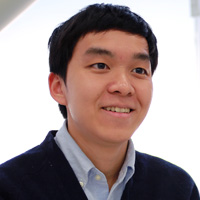
Q: As an international student, can you talk about the path that led you to choose Tokyo Tech?
I first came to Japan from Vietnam in 2008 and spent one year in Osaka taking a Japanese language course. While learning Japanese, I was also thinking about what universities to apply to. I was confused because there are so many great universities in Japan. However, I was able to narrow my selection by getting advice from other exchange students and my Japanese instructors. I ultimately chose Tokyo Tech because of its reputation for computer science, which was the field I wanted to pursue, and took the entrance exam. I am convinced that without the support that I received from those around me I wouldn't be where I am today. I am very grateful to the senior students and instructors who helped me when I was in Osaka.
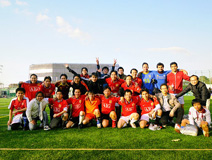
Playing soccer at Tokyo Tech
Q: During your time at Tokyo Tech, what experiences made the biggest impression on you?
For me, just the fact that I am graduating from a Japanese university is the most amazing of all.
Even though I was able to develop foundational Japanese during my year of language study, there were a lot of difficult vocabulary and expressions in my university classes, so that initially I could only understand around 50 per cent of the content. Luckily, computer science is a lingua franca, and I didn't have any serious problems with the courses for my major; but humanities courses were tough. As time passed I made Japanese friends and my communication skills improved. I have a lot of great memories such as when a group of Vietnamese friends and I made a food cart with Vietnamese food at the school festival, the Tokyo Tech Festival.
I am a member of Associate Professor Masashi Sugiyama's laboratory, and almost half the other students are international--with the effect that English is the main language that is used. I wish that we spoke more Japanese in the lab for learning purposes.
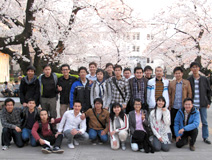
Cherry blossom viewing at the Ookayama Campus
Q: What are you planning to do after graduation?
I am going to continue my studies and pursue a master's degree. I recently gave my first presentation, and had the chance to exchange opinions with top scientists and get a lot of interesting feedback. It felt like the epitome of scientific research and increased my motivation to become a researcher even more. Although there will be greater challenges to overcome than the ones I've faced up until now, I want to continue doing research with the support of professors--that is my primary goal.
Further ahead, I want to return to my home country, Vietnam, and find ways to apply the knowledge that I've gained through my research. My long term goal is to contribute to society through my scientific field. In order to do that, I must first choose a new direction to perform master's research, and develop a foundational base in the field of artificial intelligence that can be applied on an international level.
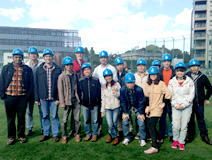
Disaster prevention training with members
from Dr. Sugiyama's laboratory
Q: Do you have a message for younger international students?
While studying and research are extremely important, club and extracurricular activities are something that you only have the chance to do in university. In addition to learning Japanese, take the time to learn about Japanese culture and make Japanese friends. Learning together is important. You should commit to studying in Japan and fully engage with the university.
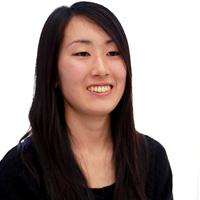
Q: What led you to choose Tokyo Tech?
I knew that I wanted to pursue science in some way, but had only vague ideas when it came to what form specifically. In choosing my focus, the first thing I needed to do was learn what research fields were out there. Although I wasn't especially interested in biology, when I heard that there was a field in which living organisms were examined through the lens of chemistry it raised my interest in Tokyo Tech's School of Bioscience and Biotechnology. I ultimately chose Tokyo Tech when I found that other universities didn't have similar departments.
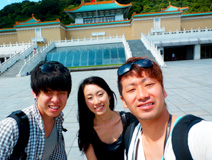
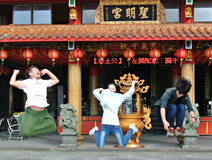
Trip to Taiwan with lab members
Q: During your time at Tokyo Tech, what experiences made the biggest impression on you?
I had a lot of opportunities to study abroad at Tokyo Tech.
In my 2nd year, I got used to using English thanks to being part of a group that planned events for international students. Then, in my 3rd year, I had the chance to participate in iGEM, an international biology competition. I worked on a research project with about 10 fellow students--this was before we really knew proper research techniques and it was basically a process of trial by error. We read difficult scientific papers and tried our best to write scientific English. Our project ended up being nominated at the preliminary contest in Hong Kong to advance to the finals in Boston.
In my 4th year, as part of Professor Yoshio Okahata's laboratory, I was nominated to travel to Singapore to spend a month and a half at a university there, working with a renowned professor that does research in my field. It was a great opportunity to familiarize myself with the work being done in my field abroad.
Q: What are you planning to do after graduation?
I will continue at Tokyo Tech in a master's program. I would like to broaden my knowledge base and perform new research in the field of gene regulation. I plan to then use that knowledge in the work I go on to do. In terms of work, I would like to do something that contributes to society and that also involves research. I do not have any particular industry or positions in mind now. It would be amazing to help bridge the gap between science and the social sciences; something that is uniquely suited to my skills and background.
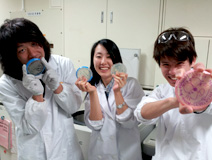
In the laboratory
Q: Do you have a message for younger students?
At Tokyo Tech, there are lots of opportunities and an extensive support system available so that students have a rich college experience, in addition to clubs and extracurricular activities. For example, there are many chances to meet and interact with international students, compared to other universities. There is also a variety of events and opportunities to meet with potential employers. I think students should look around and try to decide what type of work they would like to do. It is the same with choosing a lab, try to build relationships quickly with the other students that you'll be working with as well as with the professors that will be teaching you. By doing this, it will enable you to overcome the difficulties that you experience while doing research.
. Any information published on this site will be valid in relation to Science Tokyo.















